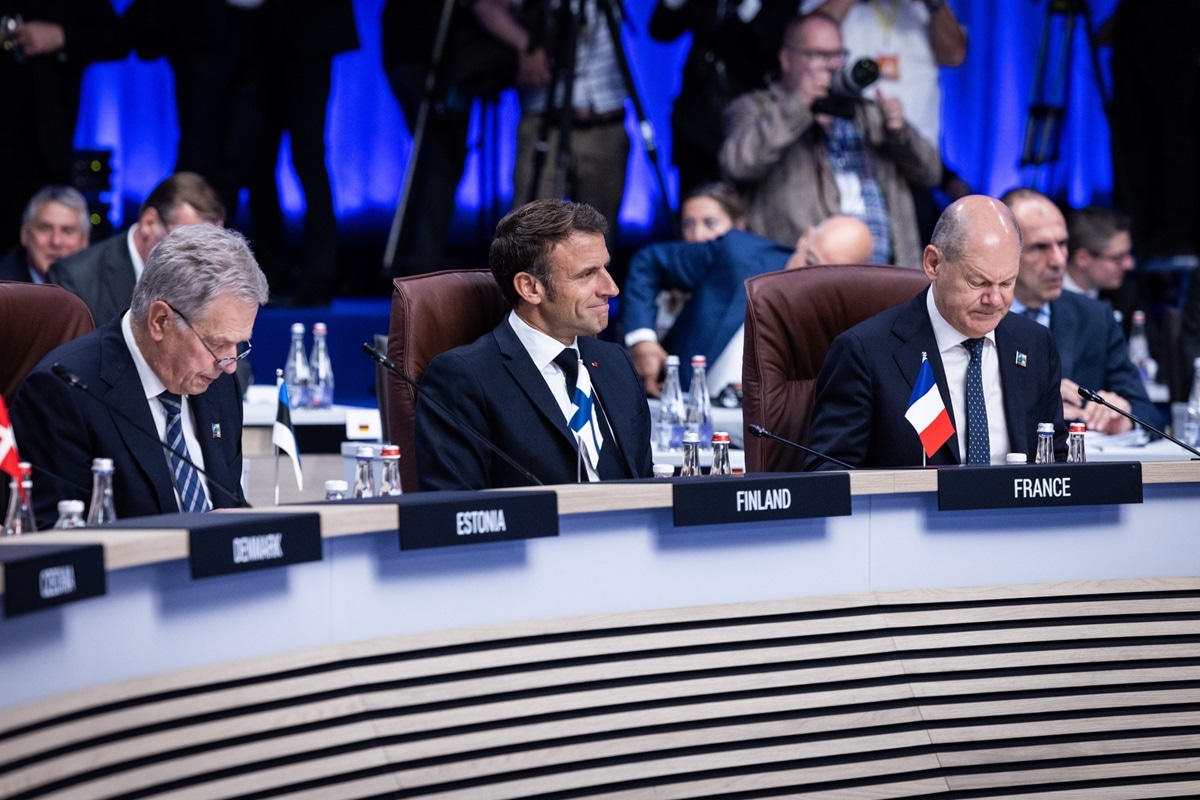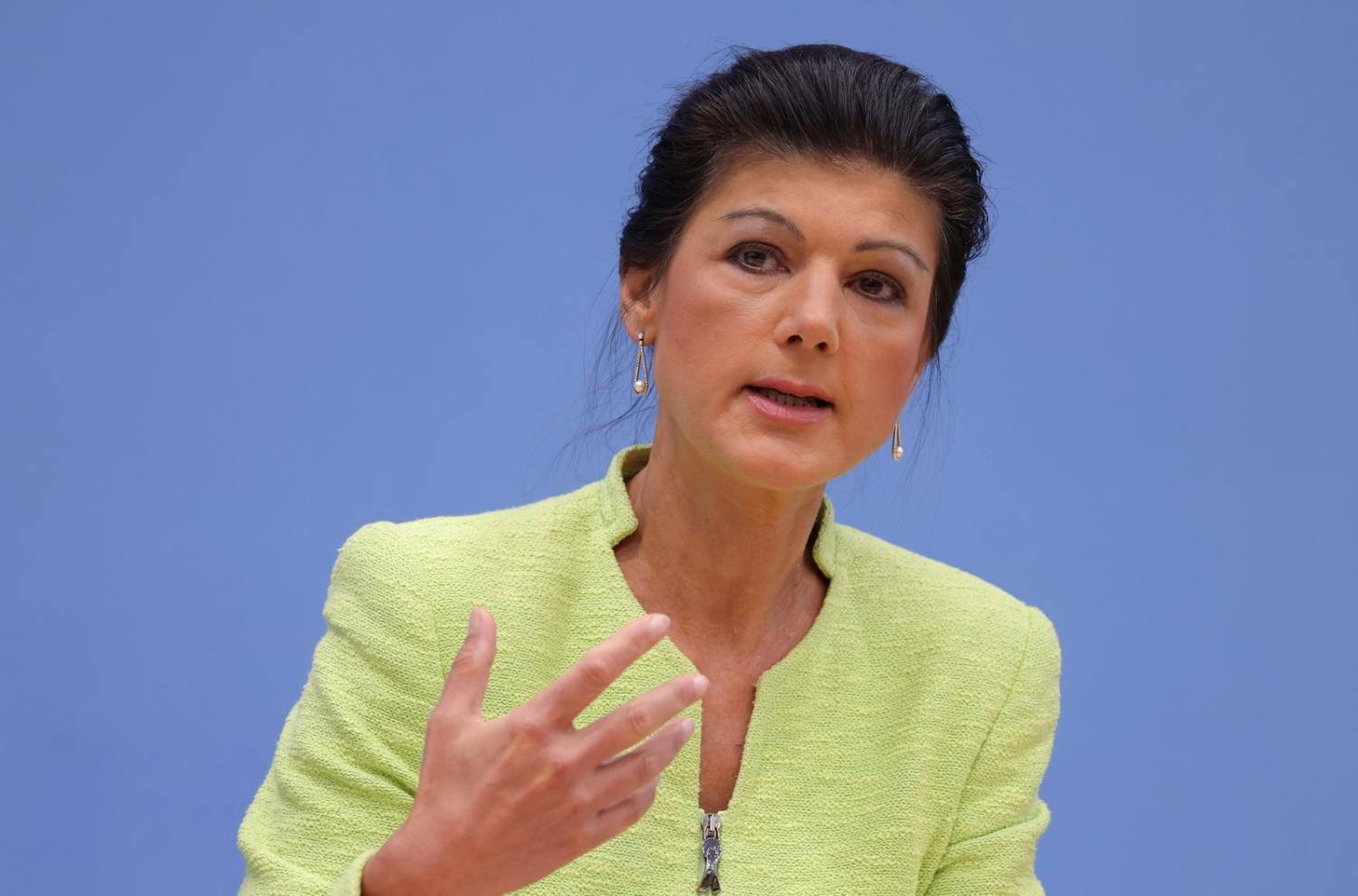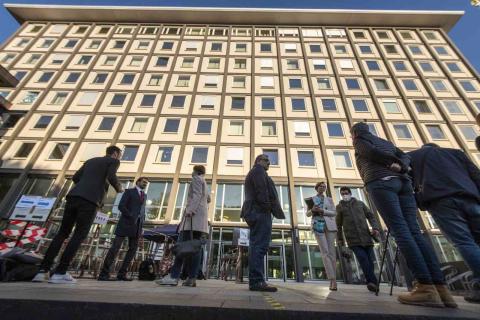She is one of Germany’s most recognised and popular politicians. And yet, Sahra Wagenknecht has never held a ministry, never been the chair of a party, and has spent her career in an outfit that has attracted only five to ten per cent of the national vote. On paper, she should be a marginal figure. But when Wagenknecht announced last Monday that she, along with a handful of colleagues, would be departing her long-time home Die Linke (“The Left”) to forge a new party, Berlin perceived it as a political earthquake. Observers in other European capitals will take note, too.
The reason was the violent shake of the political kaleidoscope that Wagenknecht’s program potentially heralds. This is not a splinter movement of Die Linke, but something very different. In addition to the conventional-left emphases on wages, pensions, infrastructure and education, Wagenknecht’s agenda combines a handful of radical left-populist essentials (attacks on NATO and big corporations, some nostalgia for the German Democratic Republic) with some classic motifs of the right (tough restrictions on migration, a return to cheap gas and nuclear energy, and routine attacks on “cancel culture” and “identity politics”). Throw into the mix a degree of Euroscepticism, hard criticism of Covid lockdowns, demands to end sanctions against Russia and weapons exports to Ukraine, and a rhetoric that rails against the disconnection of the Berlin political class from “ordinary people”, and you have an outlook that is more defined by its anti-mainstream impulse than by any “left” or “right” orientation.
Wagenknecht markets her program as the urgently-needed recovery of a lost leftist tradition. Her political North Star over the past few years has been that those voters who have drifted to the far-right Alternative für Deutschland party (AfD) are, in reality, the natural consistency of the left – particularly in Germany’s East, where the AfD and Die Linke attract their highest levels of support.
And while she hopes both to enthuse non-voters and to draw supporters away from the established parties, Wagenknecht’s principal gamble is that the conveyor belt of voters between the populist right and the populist left is more dynamic and populous than that between the fringes and the mainstream. The evidence for this is sketchy, but not wholly imaginary: at the 2017 election, some 400,000 people migrated from Die Linke to the AfD. In Wagenknecht’s view, these voters are not of a far-right habitus, but simply see the AfD as the sole viable channel for their anti-establishment frustrations and disaffections.
They can, she thinks, be enticed back.

Die Linke, Wagenknecht opines, offers these voters nothing: as she argued in her 2021 bestseller Die Selbstgerechten (“The Self-Righteous”), The Left now treats its old working-class constituency with contempt, having been overrun by middle-class urban activists more concerned with feel-good climate activism and elitist notions of “social justice” than economic fundamentals. A large but unoccupied political space therefore exists to cater for big-state, socially conservative “left behinds”. And if right-wing populists can play some classic tunes of the left, why can the reverse not also be true? As was amply on display in last Monday’s press conference, Wagenknecht draws her vital distinction from the AfD by addressing questions of migration, relations with Russia, and climate policy emphatically as economic, not cultural, matters.
Is this convincing? Regardless of how often she intones that her project is “of course not right-wing”, in the eyes of her critics, Wagenknecht’s points of overlap with the AfD matter much more than the differences. Perhaps it was only partially in jest that Björn Höcke, the extreme-right leader of the AfD branch in the federal state of Thuringia, invited Wagenknecht to “come over to us” at a party demonstration in February – to the cheers of his audience.
Whether or not the initiative will succeed is anybody’s guess. The limited data we have is hardly consistent: one poll last week found a mere 3% willing to support a Wagenknecht party (with a further 17% open to the possibility), whereas another revealed support levels as high as 12%. Previous surveys have suggested that up to half of AfD voters might be tempted to switch allegiances to Wagenknecht.
For now, though, hypothetical polling figures can only tell us so much: in the short term, contingencies, events, personnel and personalities will prove more decisive for the party’s success than electoral demographics. The precedents don’t provide a promising outlook: contemporary Germany has no history of successful personality-cult parties, and indeed in 2018 Wagenknecht’s previous efforts at founding a gilets jaunes-style grassroots movement failed completely. Like so many start-up parties, there is every chance that this one, too, will prove a damp squib, paralysed by organisational dysfunction and ego clashes.
But even should her party fail to gain a purchase on the electorate, Wagenknecht is the first to bring to Germany a novel type of political movement: one that embraces the transience and personality-centrism of contemporary democratic politics and which, in so doing, does away with the left-right political identities of old. In the most successful example of this model, Emmanuel Macron attained the presidency of France in 2017 by dispensing with the old major parties through a new, personality-cult movement that preached “radical centrism”. France’s presidential political system differs profoundly from Germany’s, of course, but there are nevertheless lessons to be drawn. One might view the Wagenknecht enterprise as neither left nor right; one might view it as both left and right. But a better view might simply be that our old categories of “left” and “right” increasingly generate more confusion than clarity. That the future of European politics will bear this out is Wagenknecht’s bet.

